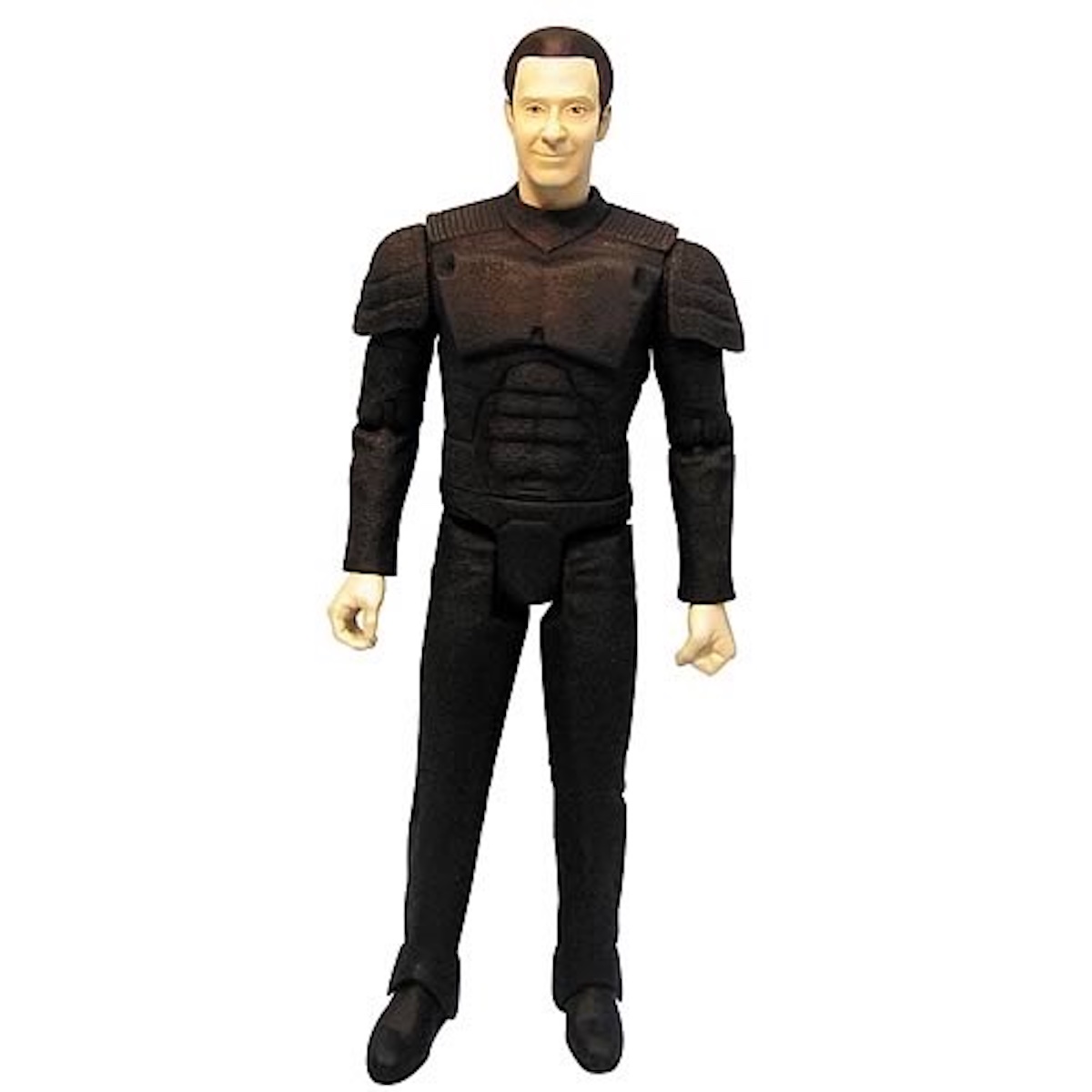“And now, the conclusion.”
As has become the unfortunate tradition for the summer-spanning two-parters of Star Trek: The Next Generation, “Descent I” raises intriguing questions – about the Borg, Hugh, Lore, and most of all Data – that “Descent II” turns out to have no interest in answering. The material about Data’s emotional discordance falls by the wayside, and instead we move into an episode-long “Evil Data” pantomime, with Lore and his pet Borg as the de facto heavies, and Hugh as a reluctant Borg revolutionary (!). Once Data’s wildly-over-the-top behaviour has been conveniently explained without actually addressing his original explosion of rage (Lore is now beaming an evil emotional frequency into Data’s brain by remote control, but was nowhere near the initial event), the thematic concerns around Data’s emotional schism also disappear.
We’re left with a piss-poor Borg episode and a terrible Lore episode, with a runner about Data torturing Geordi, who still just wants to be Data’s friend. Evil Data is just plain uninteresting; and as for Lore, the argument could be made that the character has simply run his course – or more accurately, that what barely worked the first time (in “Datalore”) and found an unexpected, but lovely, grace note in a second episode (“Brothers”) has far exceeded its actual viability. The character got popular, and became part of Next Gen’s cadre of recurring guest stars, but there was never a “there” there. As good as Spiner is at playing Data, his work as the various emotional variants of the android(s) – be they Lore, Evil Data, B4, or even Dr. Soong – play to some of the actor’s weak spots, namely an almost vaudevillian broadness of performance, which comes off as smarmy and self-congratulatory.
To be fair, the writing isn’t there to support him this time, either: Data and Lore have no dialogues of note, and nothing of any lasting substance comes out of their relationship with one another, themselves, or their dead father. Just about the only contribution to canon here is that Data gets away with the emotion chip – though he won’t do anything with it till they flip the switch in Generations, and do away with the series’ version of Data forever.
The most enjoyable part of the episode is the B-plot, with Dr. Crusher taking command of the Enterprise, albeit because she somehow managed to be the only member of the staff not cool enough to go on the away mission. And even there, we’re watching a well-worn category of Star Trek B-plots: the less-experienced officer bravely commands the ship, with the help of both a skeptical hardass and a self-doubting rookie, and because Starfleet officers are awesome, everything turns out all right. I don’t mind at all, because Beverly in the Captain’s chair is hot hot hawwwwwwttt. But it belongs in a better episode.
Unless I miss my guess, this will be the recurring theme for most of the remainders of this rewatch. I’m looking forward to seeing “Lower Decks” again, and “All Good Things” remains one of my gold standards for how one ends a series successfully. But Season 7 is also the one with Geordi’s mom, Wesley and the Native American planet, and Barclay turning into a spider. It’s gonna be a long year.

Blogging The Next Generation is winding down to the end, as I work my way through the episodes of Star Trek: The Next Generation on blu-ray. The final season is in stores now.
